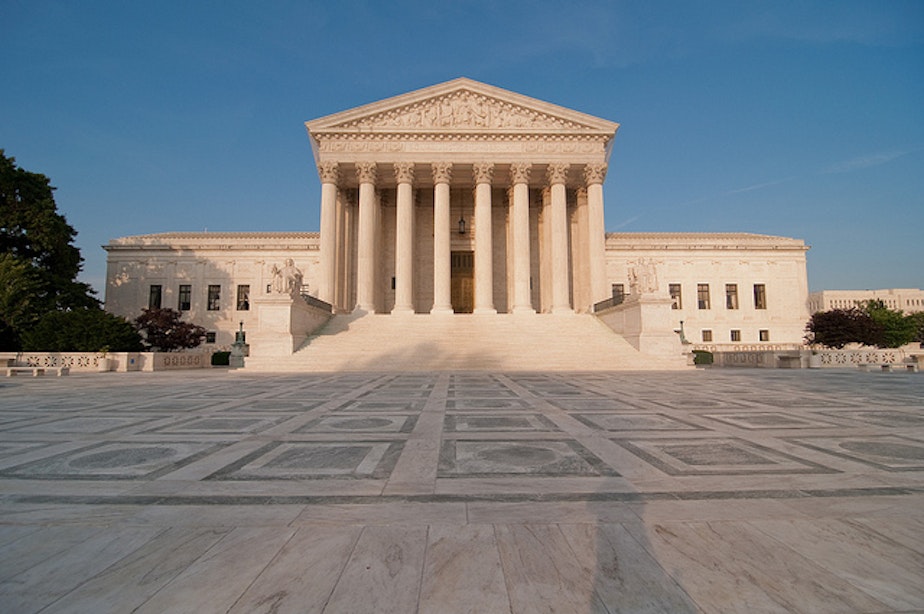How The Supreme Court's Ruling On Same-Sex Marriage Could Affect Washington Couples

You’re driving through another state with your same-sex spouse and have a serious accident – and a hospital won’t grant you the same visitation rights that a heterosexual couple would have.
Or you and your same-sex spouse retire in a state that doesn’t recognize your marriage, and when you apply for Social Security benefits, there’s a problem.
These are a two scenarios that could hit home for some Washington state couples as the U.S. Supreme Court decides whether states can ban same-sex marriage and, if they can, whether they have to recognize such marriages performed in other states. This week the court heard arguments on four cases surrounding the debate and will make a ruling by the end of its term in June.
Same-sex couples have had the right to marry in Washington state since 2012. Peter Nicolas, a professor of law at the University of Washington, told The Record on Wednesday that the Supreme Court’s decision won’t directly affect their status – but there are substantial indirect effects.
“First of all, if you have a couple who marries in Washington and either moves to a state that currently doesn't recognize same-sex marriage or is just traveling through there, and something comes up like an accident or a death where the validity of the marriage somehow becomes relevant in litigation, that could matter,” he said.
“And second, if they have moved to those states, there are a handful of federal benefits, Social Security being one of them, where validity may turn not on where the marriage was performed but where the couple lives at the time that they're seeking the benefits. And so it may not matter for many Washington couples but it could matter for some.”
Nicolas said a ruling against same-sex marriage would raise questions about what happens in states that already had court decisions involving bans on gay marriage – it “would be quite chaotic.” So he said he suspects the Supreme Court will support gay marriage, probably by a 5-4 decision.
Would that mean the end of court challenges around the issue? Probably not, Nicolas said.
“What I think you see litigation turning to and legislation, and you've already started to see it, are these questions about faith-based exceptions that allow either public officials who officiate marriages or those who provide services to weddings like photographers and bakers and those sorts of things they have the right to refuse to participate,” he said.
“Same people, same fight, slightly different issues.”

